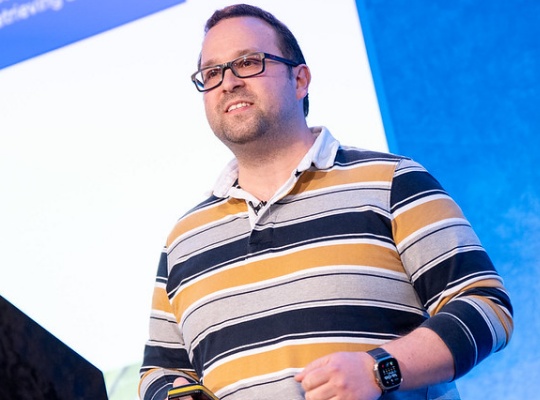Codetown
Codetown ::: a software developer's community
Apps for Healthy Kids
On President Obama’s first full day in office, he called for recommendations to make the Federal Government more transparent, participatory, and collaborative. Through the Open Government Initiative, the U.S. Government recently made available a rich variety of Federal datasets via Data.gov with the specified purpose of increasing public access to high value, machine readable datasets
generated by the Federal Government.
 As part of First Lady Michelle Obama's Let's Move initiative, the USDA's Food, Nutrition, and Consumer Services recently launched a
As part of First Lady Michelle Obama's Let's Move initiative, the USDA's Food, Nutrition, and Consumer Services recently launched a
multi-phased challenge called the Innovations for Health. The first part of this, the Apps for Healthy Kids competition, is a call to American entrepreneurs, software developers, and students to use the recently released USDA Nutrition Dataset
to create innovative, fun, and engaging applications and games that
encourage children directly or through their parents to make more
nutritious food choices and to be more physically active.
Subsequent parts of Innovations for Health will include producing motivating public service announcements (PSAs) (Video Challenge) and creating healthful recipes to be used in schools (Recipe Challenge). Details of these will be announced at a later date.
For more on the Apps for Healthy Kids challenge, click here.
Tags:
Replies to This Discussion
Notes
Welcome to Codetown!
 Codetown is a social network. It's got blogs, forums, groups, personal pages and more! You might think of Codetown as a funky camper van with lots of compartments for your stuff and a great multimedia system, too! Best of all, Codetown has room for all of your friends.
Codetown is a social network. It's got blogs, forums, groups, personal pages and more! You might think of Codetown as a funky camper van with lots of compartments for your stuff and a great multimedia system, too! Best of all, Codetown has room for all of your friends.
Created by Michael Levin Dec 18, 2008 at 6:56pm. Last updated by Michael Levin May 4, 2018.
Looking for Jobs or Staff?
Check out the Codetown Jobs group.
InfoQ Reading List
MySQL 9.6 Changes Foreign Key Constraints and Cascade Handling

MySQL is changing the way foreign key constraints and cascades are managed. Starting with MySQL 9.6, foreign key validation and cascade actions are handled by the SQL layer rather than the InnoDB storage engine. This will improve change tracking, replication accuracy, and data consistency, making MySQL more reliable for CDC pipelines, mixed-database environments, and analytics workloads.
By Renato LosioVercel Releases React Best Practices Skill with 40+ Performance Rules for AI Agents

Vercel has launched "react-best-practices," an open-source repository featuring 40+ performance optimization rules for React and Next.js apps. Tailored for AI coding agents yet valuable for developers, it categorizes rules based on impact, assisting in enhancing performance, bundle size, and architectural decisions.
By Daniel CurtisKubernetes Introduces Node Readiness Controller to Improve Pod Scheduling Reliability

The Kubernetes project recently announced a new core controller called the Node Readiness Controller, designed to enhance scheduling reliability and cluster health by making the API server’s view of node readiness more accurate.
By Craig RisiPresentation: Platforms for Secure API Connectivity With Architecture as Code

Jim Gough discusses the transition from accidental architect to API program leader, explaining how to manage the complexity of secure API connectivity. He shares the Common Architecture Language Model (CALM), a framework designed to bridge the developer-security gap. By leveraging architecture patterns, engineering leaders can move from six-month review cycles to two-hour automated deployments.
By Jim GoughMicrosoft Open Sources Evals for Agent Interop Starter Kit to Benchmark Enterprise AI Agents

Microsoft's Evals for Agent Interop is an open-source starter kit that enables developers to evaluate AI agents in realistic work scenarios. It features curated scenarios, datasets, and an evaluation harness to assess agent performance across tools like email and calendars.
By Edin KapićSwitch to the Mobile Optimized View
© 2026 Created by Michael Levin.
Powered by
![]()